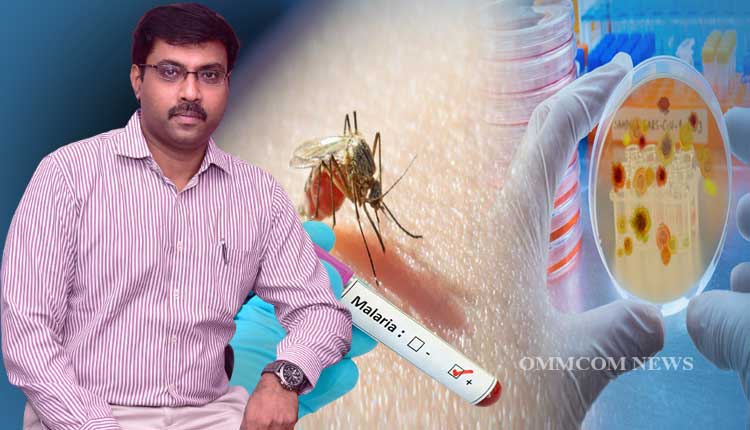Bhubaneswar: In a major breakthrough in the battle against malaria, a city-based scientist has identified a promising drug which can play a crucial role in preventing fatalities due to the vector-borne disease.
The drug in question is – Griseofulvin, an antifungal drug that’s being widely used for the treatment of fungal infections in children and adults, said Dr Vishwanathan Arun Nagraj, Senior Scientist, Institute of Life Sciences, Bhubaneswar.
In a conversation with Ommcom News, Dr Nagraj said that Griseofulvin has been successful in the ‘mice model’ to prevent deaths caused due to cerebral and severe malaria.
“If it passes the human trials, in future, Griseofulvin can be used as an adjunct drug along with WHO-approved Artemisinin treatment for cerebral and severe malaria caused by the parasite – plasmodium falciparum,” Dr Nagraj said.
Currently, the administration of Artemisinin along with partner drugs (to prevent resistance), is one of the most effective and widely used treatments for cerebral and severe malaria, worldwide.
The malarial parasite can synthesise ‘heme’ which has a role to play in cerebral malaria as well as severe malaria. The antifungal drug in question – is an FDA-approved drug. It is a safe drug which can be used for several days, and is not very expensive, added Dr Nagraj.
Out of the two most common parasites causing malaria – Plasmodium vivax and Plasmodium falciparum, the latter is the deadliest, causing 90% of the deaths. If not treated within 24 hours, Plasmodium falciparum malaria can progress to severe illness, and lead to death.
“What we have shown is that Griseofulvin can inhibit the heme synthesis that happens in the malarial parasite. In that way, it can prevent cerebral and severe malaria. Repurposing Griseofulvin as an adjunct drug for malaria along with existing ACT (Artemisinin-based Combination Therapy) would help prevent malaria mortality,” Dr Nagraj said.
While the antifungal drug has been effective in the mice model, ILS is now planning to perform clinical trials in malaria-infected human beings. Dr Nagraj, who has been working on malaria for the last two decades, the disease claims at least 6 lakh lives worldwide, as per a WHO report.
“If successful on humans, we will be having a handy, accessible and clinically safe drug to prevent malaria mortalities in the near future,” he added.















